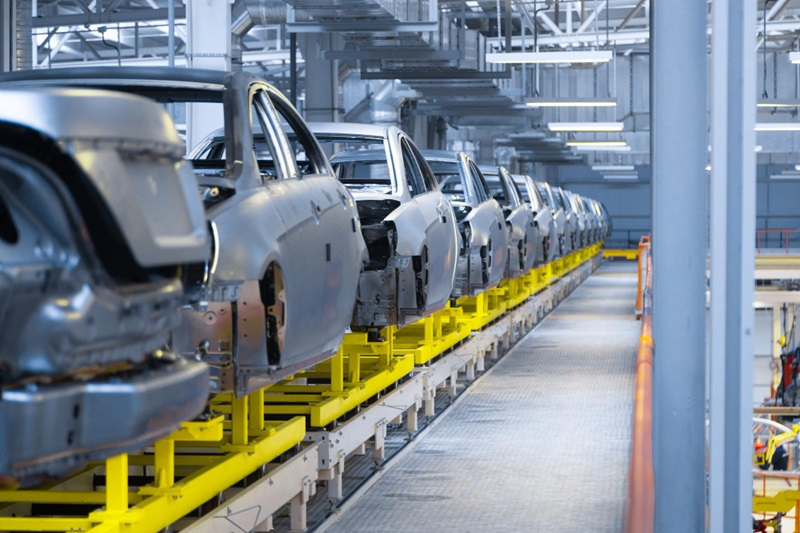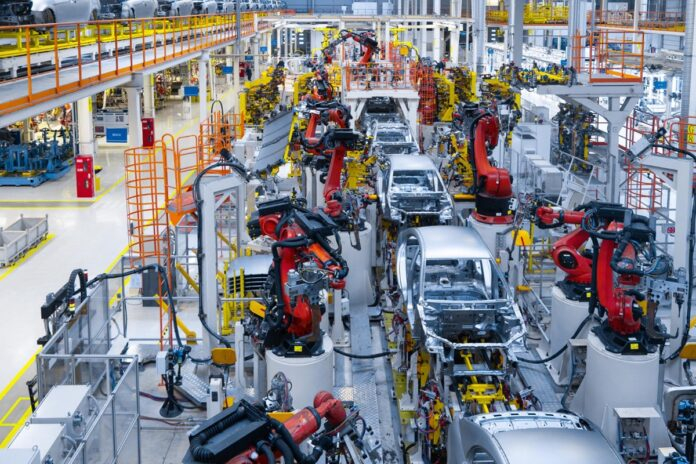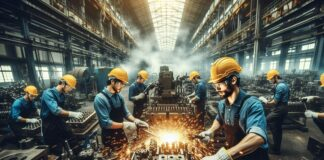The nonferrous forging manufacturers form a very critical section in industries where lightness, corrosion resistance, and durability are called for.
There is aluminum, copper, brass, and titanium, to mention but a few amongst the many nonferrous metals which possess one-of-a-kind properties fitting an array of applications-ranging from aerospace to automobile, electronics, and many more.
For this reason, it is important to identify the proper manufacturer that could deliver high-quality precision-engineered components in terms of nonferrous forging. Identify the best nonferrous forging manufacturer for your business by following these seven ways.
What is Nonferrous Forging?
Nonferrous forging actually refers to the shaping of those metals which contain very few amounts of iron. In fact, there are five such chief metals: aluminium, copper, brass, titanium, and magnesium.

These are highly in demand due to their applications, especially for parts requiring light weight, corrosion resistance yet high toughness in all such areas like aerospace, automotive, and electronics.
When forgings occur, these metals are heated and compressed into precise parts with increased strength without losing their essential properties. Compared with ferrous or iron-based metals, Nonferrous forging benefits from increased strength-to-weight ratios and protection against hostile environmental conditions.
#1. Assess Expertise and Industry Experience
One of the first aspects to consider when picking a nonferrous forging manufacturer is their expertise and experience within the industry. Companies that have been in business for many years have worked on thousands of pieces and understand the smallest difference in the processes of nonferrous forging.
They should have history of successful projects in industries where quality standards have to be very high, like aerospace, automotive and medical equipment. Check case studies or references that highlight their ability to meet industry-specific challenges.
Also Read: Why Non-Ferrous Forging is Essential for Building a Manufacturing Future
#2. Review Technical Capabilities and Facilities
The technical competence of a forging producer is directly proportional to the quality and accuracy achieved in a product. Inspect the facilities, machines, and technology that have been used in the forging process.
Try to look for manufacturers that have made use of advanced, high-tech equipment and modern technologies such as isothermal forging, open-die forging, and closed-die forging that can help process nonferrous materials.
You are most likely to get precision-forged components from cutting-edge technology-driven manufacturers who ensure that their components meet and sometimes exceed specifications.
Also Read: How Non-Ferrous Forging Ensures Quality in Manufacturing
#3. Verify Certifications and Quality Control Standards
A quality nonferrous forging manufacturers need always to hold onto the quality with quality standards. A good manufacturer would have ISO 9001 on quality management and AS9100 on aerospace.
He should assure the one that the manufacturer is rightly compliant with the rules of the industry and there is control on quality from start to end in the manufacturing process.
Ask for documentation of their certifications and what they do about their quality control procedures, including inspecting and testing.
#4. Consider Customization and Design Assistance
Not all projects share a standard forging process. For companies that have more specific and complex requirements, finding the right forging manufacturer who can accommodate customized solutions and support in design is important.
Whether the company requires complex geometries or includes specific material properties, the forging manufacturer needs to be able to collaborate with your engineering team in designing customized solutions.
Therefore, choose a manufacturer with an in-house design team that can work closely with you to optimize the forging process for you to ensure the best results for your particular application.
Also Read: How Non-Ferrous Forging is Revolutionizing the Automotive Industry
#5. Compare Efficiency of Supply Chain and Delivery
This means that the need for parts in the right quantity and at the right time is the most critical element that will ensure your business moves at full speed, particularly cases when time factors are of the essence.
You, therefore, need a good nonferrous forging manufacturer who has the right supply chain and logistics. These logistics should enable fast sourcing of raw materials and time delivery of finished products.
This is one of the ways through which productive disruption can be prevented in the production line process that may lead to costly setbacks. Discuss the manufacturer’s delivery schedules, lead times, and logistics capabilities to ensure they can consistently meet your minimum requirements.
Related: How Forging Manufacturers in India Ensure Quality Assurance
#6. Assess Reputation and Client Reviews
A reputation of a manufacturer speaks much about reliability and product quality. Testimonials and case studies from clients can give you very clear ideas about how the manufacturer performs outside the theoretical environment.
You can judge how the manufacturer performs in real-life circumstances, where they have to encounter some challenges when it comes to meeting deadlines and maintaining their products’ quality. First-hand information is even more crucial for your decision.
You should try contacting former clients directly, from whom you can gather more detailed insight into experiences with the manufacturer and, therefore, be in a much better position before making your commitment.
#7. Compare Costs and Value for Money
While cost will always be an important factor in your choice of a forging manufacturer, do not let this factor overshadow many other very important considerations.
The temptation to choose the low-cost option may result in giving up quality, accuracy, or even timeliness-all of which may translate to failure in your operation. What you need to look for is value for money: good materials, accurate forging processes, and timely delivery and, at times, design assistance from the manufacturer.
To make the best decision, there is a need to collect quotes from various manufacturers with comparative differences in detail and not to focus on cost alone but on the value-added services provided by the manufacturers.
Conclusion
It is imperative to choose the right manufacturer for forging nonferrous products to ensure the success of the project. Achieve this by making the right selections based on expertise, capabilities, certifications, customization options, efficiency in delivery, reputation, and costs.
You’re assured to eventually find that manufacturer that will provide you with the forged components required for your elevated standards. Partner with an experienced and reputable manufacturer of non-ferrous forgings and set yourself ahead of competition while reaping cost efficiency with durability, precision, and performance in applications.








